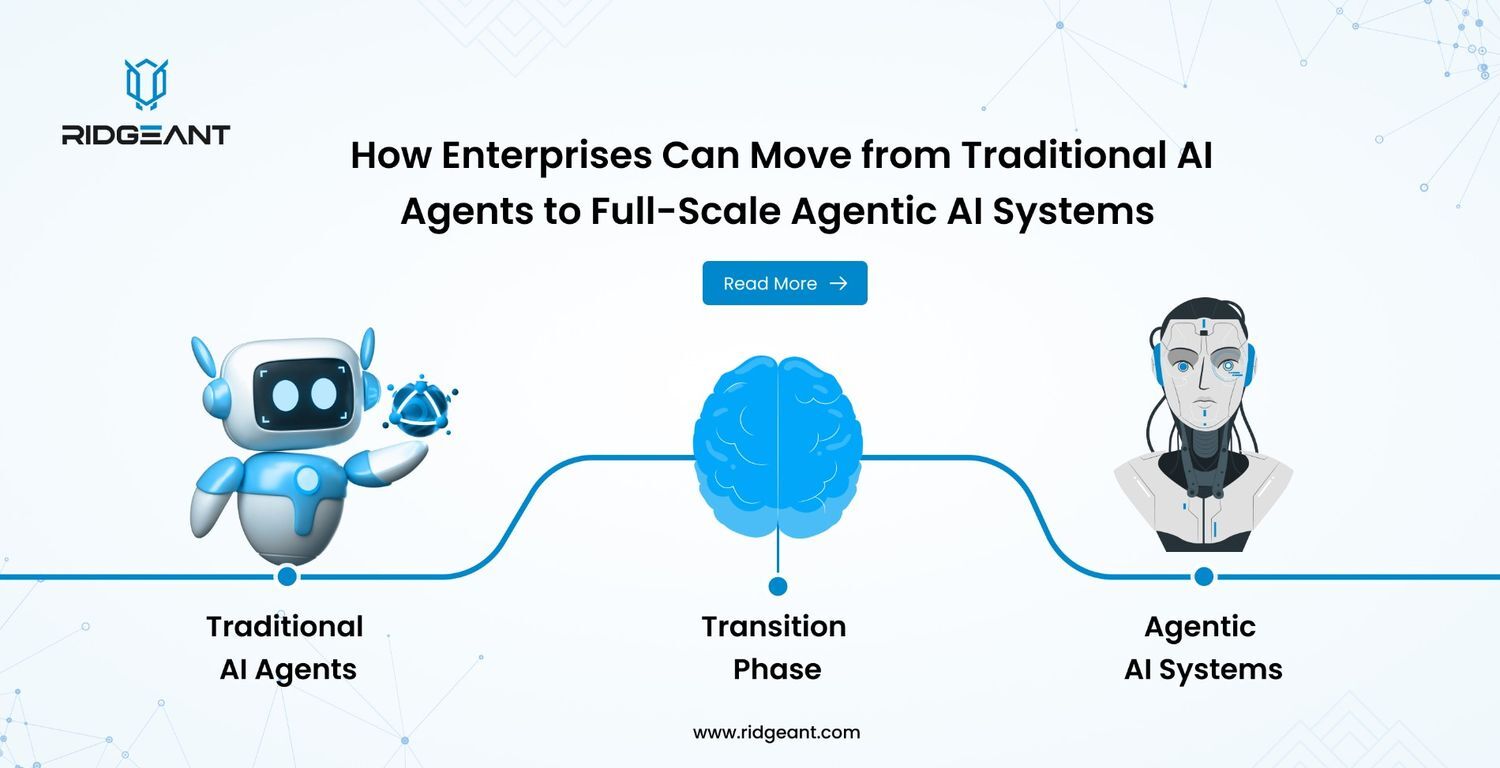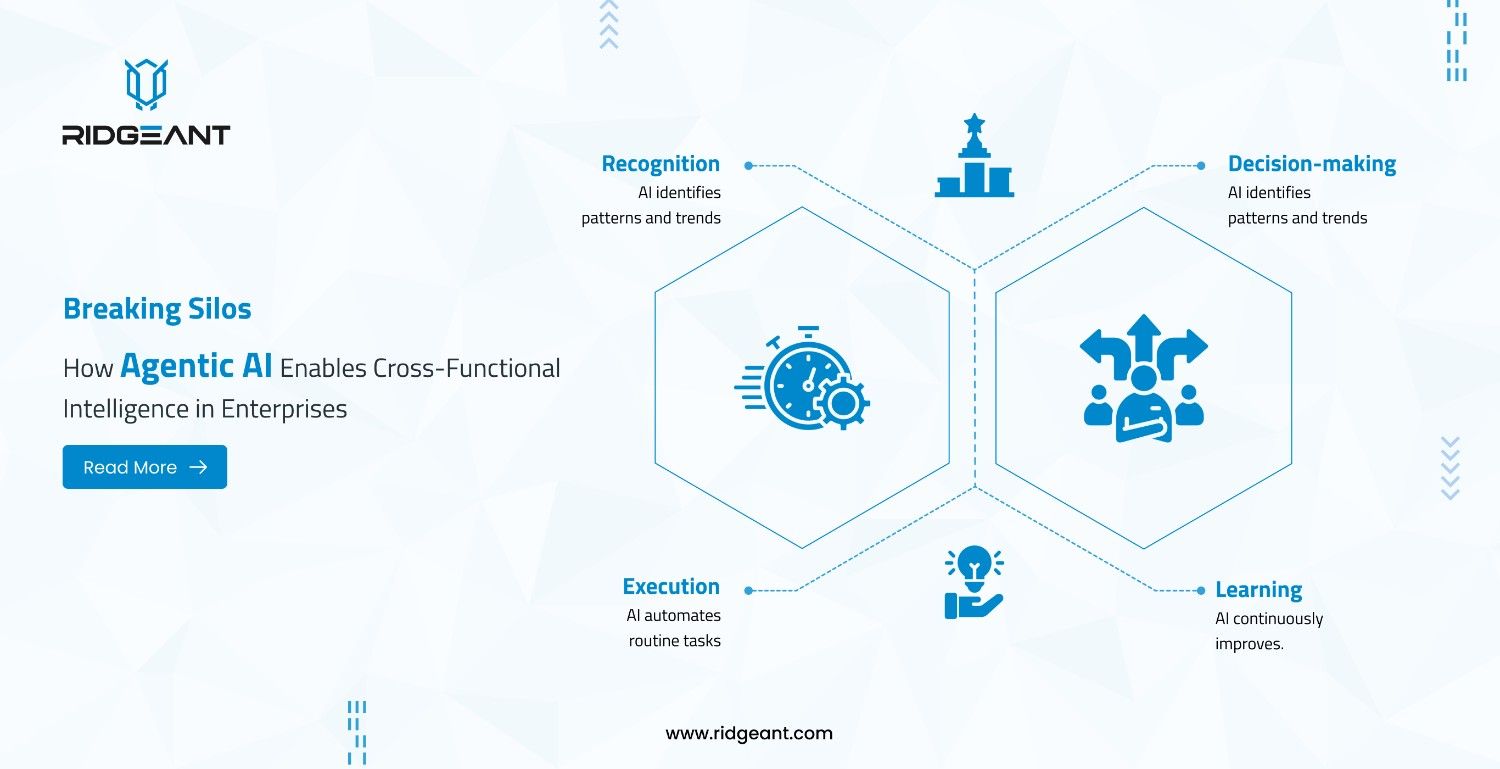
A Comprehensive CIO Guide on Generative AI
- ML and AI, Generative AI, Artificial Intelligence, Machine Learning
- November 27, 2023
- Ridgeant

“Generative AI is the most powerful tool for creativity that has ever been created. It has the potential to unleash a new era of human innovation.” – Elon Musk
The business horizons are expanding far and wide, and staying abreast of the curve is very much needed for a sustainable and successful tomorrow. One innovative and lucrative technology that can offer this is Generative AI – the next-gen advancement.
According to Gartner, Venture Capital firms have invested $1.7 billion in generative AI over three years, with AI drug discovery & software coding receiving the most funding.
CIOs often have the toughest jobs coming to them, and those issues have a direct relation with the company’s future. That is a big reason CIOs are going in for trending and innovative technologies. The way they make the right decision is important since making the apt choice could give them great returns, but taking the wrong step could lead to hassles like privacy issues, legalities, etc.
They are embracing Generative AI to gain a competitive advantage and stay well-prepared to swim across the altering technical landscape and work environments.
Certain questions keep lingering in the minds of CIOs – will Generative AI be able to transform my business model? Are there any consequences of Generative AI and if so, how to resolve them? How can I create an innovative culture in my organization with Gen AI?
Rate of generative AI adoption in the workplace in the United States 2023 by industry

How CIOs adopt Gen AI is surely an interesting fact. It is important to invest in the right emerging technology that can offer the best possible advantage in terms of returns, security, legalities, etc. CIOs need to understand that they have to manage and implement Gen AI with a lot of care and wisdom since it is one of the most in-demand and volatile technologies of today and tomorrow.
This article focuses on the importance of Generative AI for businesses and how CIOs can augment employee and customer experience. It also highlights the benefits and challenges of Generative AI in the business world.
What is Generative AI?
Generative AI is a specialized type of AI that generates a wide variety of content, such as videos, text, photos, imagery, data, audio, and 3D rendering, from the huge bulk of data that is available. These models and algorithms create new predictions based on the data they have been accomplished with, resembling human-created content. Some of the popular Generative AI tools are GPT-4, ChatGPT, Bard, GitHub Copilot, Synthesia, etc.
It brings along salient benefits such as Gen AI chatbots being used in different industry segments, data augmentation, realistic simulation of real-world scenarios, suggestion of new molecular structures, data synthesis, scientific research and engineering, hyper-personalization, adaptive learning, increased customer satisfaction with least human intervention, time and cost savings, easy search for shoppers with voice assistance.
Certain risks are associated with Gen AI, such as data overflow, potential privacy issues during training or data storage, compliance issues, synthetic data generation, unintentional leakage of information, and malicious attacks.
What Can You Do with Gen AI?
- Fasten creation of different types of content
- Better reorganization of teams with better clarity
- Inbuilt conversational design into the created content
- Validation of process to ensure a safe and consistent output
- Ensure seamless integration across systems for better personalization
- Continuously optimize automation with insights and analytics
Good Read: Enterprise Generative AI – A Bright Future Ahead
What Must CIOs Do to Unlock the Potential of Generative AI?
Leveraging Generative AI in the business world has its share of pros and cons. That is where following a certain plan of action is important for CIOs to unleash the business value, orchestrate technology and scale business solutions. Here are some of the key action items:
- Find out the organization’s strength to go in for Generative AI
- Identify enterprise use cases that can be leveraged with this technology to create value with enhanced productivity and innovative business models
- Create a financial competence that can generate accurate costing and return on investment
- Go in for application of context to LLMs with organizational data
- Create innovative AI apps for enterprise users, reimagining the generation of technological capabilities, increasing automation
- Ensure detailed data security and privacy
- Go in for an AI governance framework
- Make the best use of existing Gen AI models to save on time, money, and efforts
- Enhance the organization’s infrastructure and architecture for better management and integration of Gen AI models
- Create a robust data architecture reaching out to good quality data through disparate data sources
- Implement a cross-functional and centralized Gen AI platform that can leverage key roles like data engineers, software developers, security personnel, etc.
- Assess the entire risk landscape and come up with continuous mitigation activities that can take care of all involved data and models
Key considerations as CIOs start on their journey of exploring Gen AI are ethical usage of AI, data accessibility and quality, security and privacy, seamless integration with IT infrastructure, interpretability, and talent acquisition.
Till Later
As rightly said by Bill Gates –
“Generative AI has the potential to change the world in ways that we can’t even imagine. It has the power to create new ideas, products, and services that will make our lives easier, more productive, and more creative. It also has the potential to solve some of the world’s biggest problems, such as climate change, poverty, and disease. The future of generative AI is bright, and I’m excited to see what it will bring.”
At Ridgeant, we empower businesses with next-level Generative AI development, reshaping strategies, operations, and outcomes across sectors, guiding businesses towards a future of innovation. We utilize state-of-the-art technologies linked with robust cloud infrastructure to deliver enhanced Generative AI services.
Ridgeant’s well-designed AI model development lifecycle encompasses important stages, starting from identifying use cases to constructing the model, and deployment. As your reliable data partner, we empower global businesses to seize opportunities and drive impactful change. React out to us in case of any AI need of yours, and we will be happy to help.














